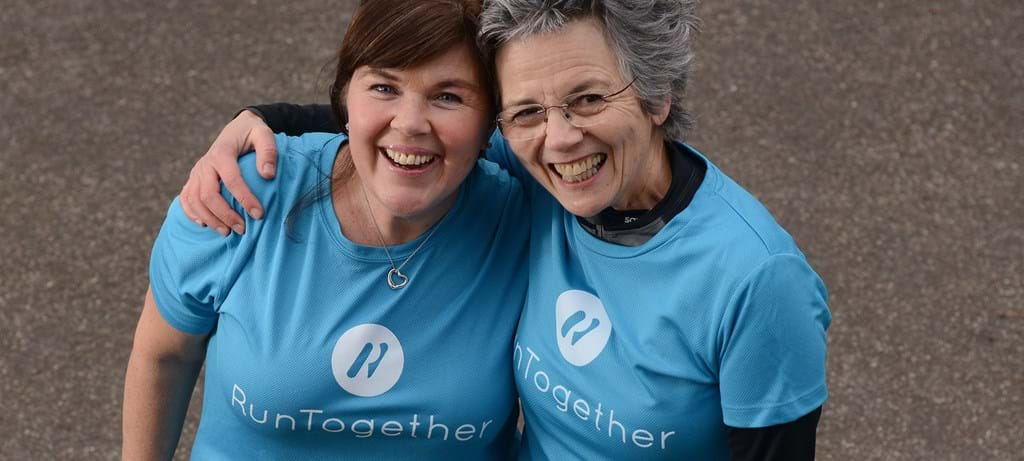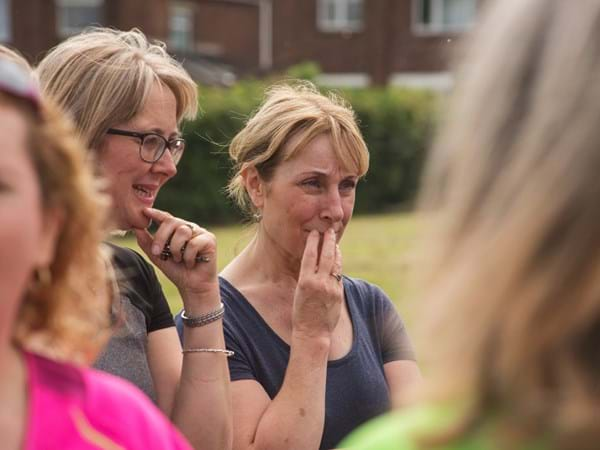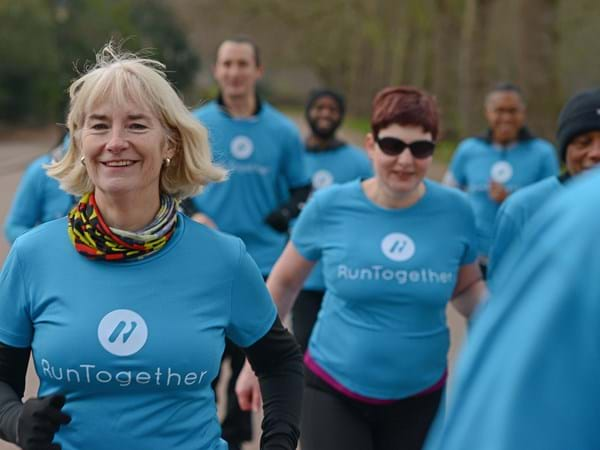
How do we get more older people to run?
I had a really interesting experience at a bus stop in France a couple of years back. I was photographing the World Masters Athletics Championships in Lyon, so I was in a world of elite athletes even if they were elite athletes with a difference. That difference was that although you become eligible for masters events when you are a spring-chicken (in my eyes) of 35, the ones I was particularly interested in were those in their 60s, 70s, 80s and 90s.
So for the two weeks of the championships, I was immersed in a world where watching people pole-vaulting or competing in decathlon events in their late 80s was just an everyday, regular thing to do. It became my new normal. I could barely keep up with the opportunities to photograph octogenarian and nonagenarian athletes as they competed against each other, running at great speed and/or throwing themselves (or other objects such as javelins or weights) over great heights or distances. People often say “oh you photograph elderly athletes”, but trust me, the connotations of that word ‘elderly’ couldn’t be more out of sync with the athletes I was lucky enough to see and to document in Lyon, as they battled it out on the track and field before me.
Sometimes during those championships (a lot of the time, actually) I felt as though I was in the middle of a ‘Where’s Wally?” image with a plethora of jaw-dropping stuff going on all round me. I struggled to know which way to look or what to photograph next.
There were some 16000 athletes from all over the world there and the events were spread out over different stadia throughout the city. One of the logistical problems for me was not only deciding which event in which stadium to photograph, but then getting to it too. Fortunately, the city has a fabulous metro system as well as bus service and we all of us – competitors, officials, visitors and press – made good use of both.
On one day I needed to get from one stadium to another and this involved either hopping on a bus to the local metro station about a kilometre or so down the road, or walking to it and then getting the train on to my next destination. I wandered over to the bus stop, heavy camera bag on my back, to see how soon a bus might be coming and whether I’d get there sooner waiting for it or by walking.
There were quite a few people waiting at the bus stop. I took that as a sign that one might be on its way, but still I decided to ask a friendly looking woman of about my age whether I should wait or walk to the station. She looked at me incredulously when I put the question to her. “Why would you walk?” she asked, as though I was slightly mad. “If you do, you’ll be tired.” She shook her head as though to say “are you stupid, or what?”

Now that took me a bit by surprise. It’s true I was thinking yes, I’m feeling a little lazy, so if a bus is coming right now, that’d be nice. But I was also weighing up the fact, as I believed it to be, that walking would be good for me, it would get my heart rate nicely up, I’d feel better afterwards, it would be a spot of exercise (remember, I was photographing these athletes, not doing anything remotely athletic myself). In short, I was worried about losing the modicum of fitness I’d built up before the event with my running and tennis and so on. After all, use it or lose it; isn’t that what we hear all the time? And I wasn’t using it. Not at all.
However the nice French lady obviously had a completely different mind-set. She looked to the assembled little group standing there with us at the bus stop, rolling her eyes in amused disbelief that this was even a question worth posing. The nodding, shoulder-shrugging and overall general agreement that followed made it clear that here was an obvious and widely-accepted truism. If I walked, I’d be tired and then what? It was a ‘use it and lose it’ scenario, I was led to understand. Our energy is finite, went this argument. You either conserve it or you risk using it all up and well, then, voila! it’s gone.
I was reminded of this clash of beliefs (hers with mine) a few days ago when I found myself pondering that million-dollar question: how do you get people, especially older people, to change their lifestyle patterns and take up exercise? Specifically, how do you recruit new, older runners? This question is dear to my heart. I really, really would love to inspire people of my age group to take up running and to find out just how amazing it is, and how many benefits (many of them unexpected) it can bring. But my mind kept coming back to how different we are, we so-called ‘older people’.
Earlier on in that single morning in Lyon, I’d been watching elite athletes in their 80s sprinting over hurdles or tackling the pole vault event or the terrifying (to me) steeplechase, with its high barrier you have to clamber over followed by jumping down into thigh-high water. Their normal was way out of reach of mine. I’d then tussled with my own inner voice telling me that I was losing it by not using it and that walking a bit in the heat with my camera bag on my back would do me good. And then I’d met the lady at the bus stop who wanted to conserve her apparently finite energy at all costs and who was certainly not going to walk anywhere she didn’t have to.
You could put a whole bunch of us, let’s say sixty-somethings, in a room together, in other words, and we would have a massively different attitude towards exercise, sport and what our ageing bodies are and are not capable of. We are so not a homogeneous lot, we over-60s (or over 50s, or over-whatever number you like to pluck from the air). And yet we so often get treated as though we are, as though we’re a single group and that getting ‘us’ to exercise needs a single solution.

One of the things I love about #RunTogether is the way it opens up so many different possibilities for addressing the very diverse needs that we oldies bring with us. I ran with a fabulous Get Me Started group last week in beautiful countryside near Bristol where most of the runners were in their 40s. However, one lady was a week or so off her 70th birthday. I asked her how she’d feel about running in a group specifically dedicated to runners over a certain age. She looked at me in horror. “I live so much in my life with older people,” she said. “What I love about this group is being with mixed ages.”
Yet I’ve also met a number of people in their 50s and 60s who say to me that they get discouraged running with younger people, who, they feel, progress faster than they do. And they put a strong case for having groups where there is a cut-off lower age. “Please get in touch when there is such a group,” they say to me. And of course #RunTogether can do that too.
We’re all different and we all have our inner beliefs that are going to affect how or indeed if we exercise. And the older we are, the longer our beliefs will have been forming and crystallising inside us. Addressing all our very different viewpoints are part of the challenge when you want to encourage more older people to run but they are also part of the joy of running together.
We’re an interesting, diverse lot, all of us runners, young or old. So of course there’s no one-size-fits-all solution that’s going to work for all of us. And that hot morning in Lyon a couple of years ago really brought the point home to me.